Our roots in innovation
What drives us? Developing sustainable solutions for some of society’s most pressing challenges.
Our legacy
1939
Creation of the Swiss Laboratory for Horological Research (LSRH) by the watchmaking organizations of Neuchâtel.
1962
The Center of Electronic Horology (CEH) is founded to develop electronic watches in Switzerland, with a consortium of 20 Swiss watch manufacturers. By 1965, quartz crystal is chosen for electronic watches.
1967
The CEH produces the world’s first quartz wristwatches (Beta 1 and Beta 2), which are more accurate than mechanical chronographs. The transition to atomic time begins.
1978
Creation of the Swiss Foundation for Research in Microtechnology (FSRM) to support microtechnology and its applications. The FSRM merges with CEH and LSRH to form CSEM in 1984.
1982
CSEM’s CoolRisc™ technology allows the first microprocessors to be used in watches without draining the battery. More than forty years later, CoolRisc™ technology continues to be used in new products.

1984
Creation of CSEM by merging LSRH, CEH, and FSRM. Focus on researching new microelectronics and microtechnologies. 185 employees, 1 site in Switzerland

1986
CSEM launches international research initiatives to develop new semiconductor designs and technologies with AI (IMAGIA).
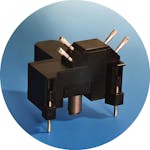
1991
CSEM develops Europe’s first commercial standalone Atomic Force Microscope (AFM) for nanoscale surface topography measurement.
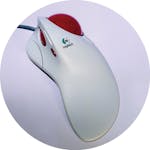
1995
Production of the Logitech TrackMan® Marble® Trackball, the first optical technology computer mouse. The optoelectric system was developed by CSEM engineers.

1997
CSEM co-creates the world’s first universally mobile telecommunication systems (UMTS) demonstrator, leading to the birth of 3G.
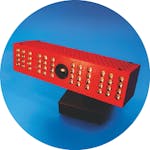
2001
CSEM and its industrial partner Cedes SA develop a 3D camera with Time-of-Flight (TOF) technology and an artificial retina, winning the 2004 Grand Prize, one of Europe’s most distinguished awards for technological innovation.
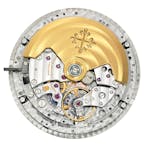
2002
CSEM announces a method using silicon in mechanical watchmaking named Silinvar, offering unprecedented accuracy, reliability, and less maintenance.
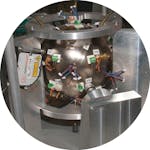
2008
The European Space Agency (ESA) commissions CSEM to create a new satellite Attitude Determination and Orbit Control System (AOCS), attracting significant interest from European aerospace organizations for its potential in various applications.
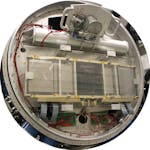
2012
CSEM works on MOSFIRE, an instrument analyzing infrared radiation from stars, leading to the discovery of the most distant galaxy.

2014
CSEM co-develops HD cameras on the Rosetta space probe, capturing the first-ever 360° panoramic images of a comet’s surface.
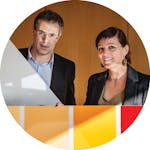
2014
CSEM develops the world’s first pure white and colored PV panels using a solar cell technology that converts infrared light into electricity with a selective scattering filter.
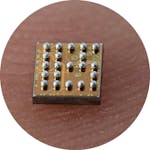
2017
Development of the world’s smallest Bluetooth® chip, 100% Swiss made, crucial for portable electronic devices and Internet of Things, designed by EM Microelectronic, Swatch Group R&D, and CSEM.
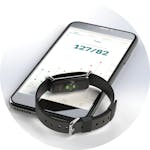
2018
CSEM develops a medically-certified cuffless optical blood monitoring (oBPM) tool using optical sensors and algorithms. It enables continuous blood pressure readings by illuminating skin blood vessels.
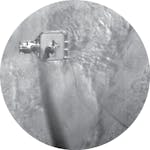
2019
The European project RemoveDebris designs technologies to manage space junk, with CSEM providing a vision system comprising a color camera and imaging lidar to locate and track debris.

2021
Created with the collaboration of CSEM, denovoCast is the world’s first machine that automates skin production, aiming to transform treatments for severe skin issues.

2024
600+ employees, 6 sites in Switzerland, 200+ patent families, 230+ industrial clients per year
